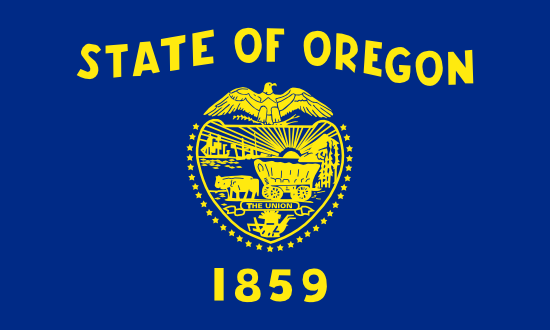On paper, your business idea may seem brilliant, but it isn’t worth much unless it’s put into action. Before you can start expanding your market in South Carolina and reaping profits, you need to jump through a few legal and regulatory hoops. This guide will help you understand exactly what you need- and how to obtain it.
Looking just for the Tax ID (EIN) Application?

Steps to Getting a Tax ID (EIN) Number and Register Your Business in South Carolina
- South Carolina Means Business
- Forming a Business in South Carolina
- Federal Tax ID (EIN) Number Obtainment
- South Carolina State Tax ID Number
- Localized Licenses and Permits in South Carolina
1. South Carolina Means Business
South Carolina is an exceptional place to start a business. There are already more than 384,000 small businesses in the state, but don’t think of them as competition; these are examples of how small businesses can thrive in this active entrepreneurial environment, and peers with whom you can establish a stronger local economy. In fact, 96.9 percent of all businesses in South Carolina are small businesses, and collectively, they employ more than 743,000 people.
Bordering the Atlantic, and reaching into the Southern United States, South Carolina is a culturally diverse state with both urban and rural opportunities. Startups can find a home in metropolitan areas surrounding Mt. Pleasant, Columbia, Charleston, and other big cities- and enjoy an economic growth rate that’s holding steady at 2.3 percent.
2. Forming a Business in South Carolina
One of the biggest decisions you’ll have to make for your business is how you’re going to legally structure it. Not only will it determine how you pay taxes, it could also determine whether or not you’re held liable for the business’s actions- including any debt it’s taken on.
These are your main options:
- Sole proprietorships/partnerships. The simplest types of businesses are sole proprietorships or partnerships- they only differ in terms of the number of members. Starting one and maintaining one is simple, and you’ll pay taxes straightforwardly, on any income you personally make in the business. The downside to these types of businesses is that they leave you personally liable for just about everything.
- Limited liability companies (LLCs). The next step up is an LLC, which can shield you from some types of liability (as the name suggests). Legally, these are treated as separate legal entities, or pass-through entities as far as your income is concerned. You’ll pay taxes on any income you withdraw from the business, and on any dividends or profits you take. South Carolina differs from other states in how it treats LLCs; you won’t have to file an annual report, like you would elsewhere, but you may be responsible for filing taxes as a corporation, depending on how much money you make.
- Corporations (C-corporations and S-corporations). Corporations are significantly more complex than any other business type, but for good reason. Corporations make it easy to raise funds by issuing public shares, but must keep much more detailed records as they grow. Like LLCs, corporations are seen as separate legal entities- which means you’ll be shielded from liability. Corporations are also responsible for paying taxes on eligible income, in addition to taxes you’ll pay on any personal income you withdraw from them, resulting in a kind of double taxation. In South Caroline, corporations also must pay a 5 percent corporate income tax rate.
Before you make this decision, make sure you have a business plan in place– or have at least started work on one. This document will help you work through the nature of your business, study the competition, and lay out a financial plan for development that makes sense.
3. Federal Tax ID (EIN) Number Obtainment
Your business plan is important, but not strictly necessary for creating your business- at least, not from a legal standpoint. For that, you’ll need to register your business with the federal government, by means of a federal tax ID number- sometimes called an employer identification number (EIN).
You’ll need an EIN for any LLC or corporation, and for any sole proprietorship or partnership that intends on hiring people, opening a business bank account, or taking other significant financial actions; think of it as a social security number (SSN) for your company. You’ll include it in your applications for bank accounts, lines of credit, and even when establishing new partnerships with other businesses; you’ll also need it to file taxes at the end of the year.
The faster you get your EIN, the faster you can start making money in your business, and the fastest way to get yours is through our federal tax ID number obtainment services. With just a few pieces of information, we can get your business registered, and give you the EIN you need to keep moving forward.
4. South Carolina State Tax ID Number
If you plan on selling goods and services in South Carolina, or hiring employees in the state, you’ll also need to register your business to pay state-level sales taxes and employment taxes (as well as excise taxes on specific products, like alcohol or gasoline). This process is similar to the process for getting a federal tax ID, but applies at the state level.
Use our South Carolina state tax ID number obtainment services to get your state tax ID and begin operations as soon as possible.
5. Localized Licenses and Permits in South Carolina
Your business may also be required to get a specific license or permit (or several) to operate legally in South Carolina. Unfortunately, these requirements aren’t straightforward, nor do they apply at a state level. You may need special certification if you engage in a specific industry, such as healthcare, or if you’re operating in a specific city, like Charleston. But since there is no simple way to reduce this information, you’ll need to look up licensing and permit requirements by city. Alternatively, you could go to your local chamber of commerce and learn the requirements there.
If your business plan is the first step toward making your idea a reality, then getting your federal tax ID and South Carolina state tax ID are the second and third step. Make it easy on yourself by utilizing our tax ID obtainment services, for both the federal and state level.


